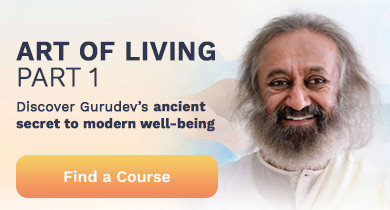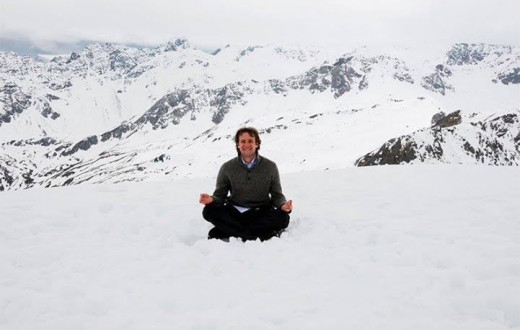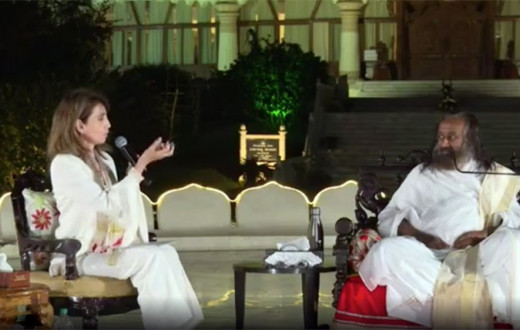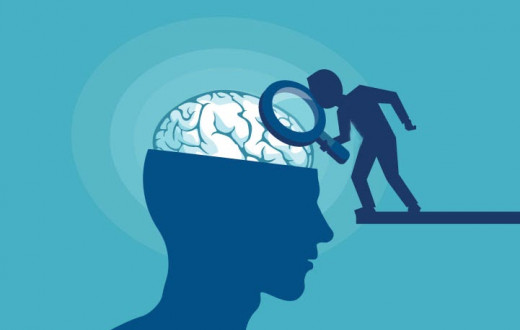By Elizabeth Herman | Posted: January 28, 2020
One question came to Gurudev Sri Sri Ravi Shankar about different modes of thinking. He immediately related some valuable ideas about the different energies and activities of the two sides of the brain, and how breathing and meditation interact with these necessary functions. The audience member asked, “How do we practically blend intuition and logic to do great research? How to improve both these aspects?”
He answered, “Logic and music: both are essential in life. Usually I suggest that accountants, engineers and scientists, who do a lot of left brain activities, listen to a half hour of music every day, to balance their right brain activity, too.
And, similarly, people who are singing all the time, musicians who live in their own world, for them I recommend doing puzzles or crosswords, or study or reading.
So we need to balance these two sides of our brain: music and logic. Meditation will help them both.”
Nostrils and the brain
To make a practical connection with the breath, Gurudev discusses how breathing on different sides affects the brain: “You know, when the left nostril is active then the right brain is active. And vice-versa. The right brain is music. The left brain is logical. So those who have the right nostril active would understand me better.” You can make sense of language through the logical, left side of your brain. Keeping your right nostril clear and active can help you do this.
He further links these connections to the meditation process, “If both are active you’re in meditation. However, if only the right nostril is active, no meditation happens. Your state changes every time you open and close your eyes. After food, the right nostril should dominate. When the right nostril functions, the metabolism is 50 percent higher. When the left is functioning, our metabolism is much slower.”
Since the metabolism goes down during meditation, it’s best to meditate before eating. The left nostril must function in addition to the right. In this way, meditation won’t disrupt your digestion of food, and the higher digesting metabolism won’t stop you from going deep in meditation.
When steeped in logic
For those who spend much of the day participating in logical, left brain types of work, Gurudev continues to recommend intentional, active balancing. He says, “Take an interest in some art form. In the corporate world, you’re loaded with left-brain activities like logical thinking, planning, analysis, etc. So you need to balance the left-brain activity with the right-brain activity.
Painting, music, poetry or any other kind of creative and recreational activities activate the right brain. When the two hemispheres of the brain are balanced, you can experience higher clarity, higher creativity, higher productivity, higher efficiency and higher relaxation.” Wouldn’t these benefits of dipping a toe into the humanities be worth a try, not to mention the cultural elevation you may gain from such pursuits?
Unblocking your energy
To help unblock either or both nostrils, nadi shodhan, a yogic breathing technique also known as alternate nostril breathing, can help. With patience, the energy centers in your body and brain receive nourishment from slow, deliberate breaths in and out of one nostril at a time. Your thoughts can’t help but relax when taking long, slow, light breaths. Soothing and clearing the sinuses and nasal passages can be an added benefit when your nose feels stuffed up and your head is suffering for any reason.
With age old yogic techniques for regulating your breath, mind, digestion, and brain, you can understand your own functioning and become more reflective about how to balance your life. Knowing that the left nostril and right brain activity support meditation and creativity, while the right nostril and left brain support logical thinking and digestion, can explain a lot about how you might feel at any given time.
For more experience with the breath and meditation, find a Happiness Program or Sahaj Samadhi Meditation course near you! Once you start to put this knowledge to use, through natural, easy practices in daily life, you’ll probably never want to stop.
Elizabeth Herman writes, offers writing support to clients, teaches, and volunteers for a better world. She has a PhD in Rhetoric, Composition and Literature. Find her on Facebook or Twitter.





























